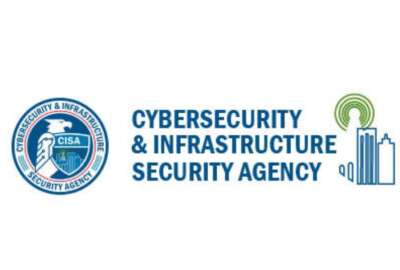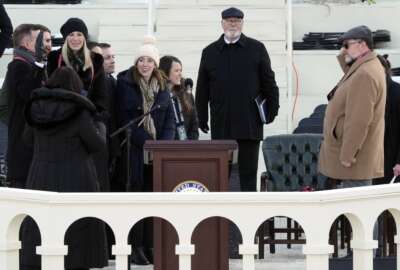Comer introduces SHOW UP Act to get federal workers back to the office
The bill would return federal employees to the work arrangements they had prior to the COVID-19 pandemic.
- Federal employees are facing a familiar bill in a long line of legislation aiming to cut telework options. House Oversight Committee Chairman James Comer reintroduced the SHOW UP Act this week. The bill would return federal employees to the work arrangements they had prior to the COVID-19 pandemic. In practice, it would largely scale back federal telework. The House passed the bill in the last Congress. But the Senate did not take any action on the companion legislation. During a hearing this week, Comer said there’s “no reason” feds shouldn’t go back to pre-pandemic telework levels.(SHOW UP Act - Rep. James Comer (R-Ky.))
- President-elect Donald Trump’s pick to lead the CIA John Ratcliffe has pledged he would not impose a political litmus test for agency employees. Testifying before the Senate Intelligence Committee yesterday, Ratfcliffe said it’s essential that the CIA director remain an apolitical position. Ratcliffe previously served as Director of National Intelligence during the first Trump administration. In his opening testimony, Ratcliffe also called on the CIA to do more to contest the Chinese Communist Party. He said he would increase the agency’s efforts to harness technologies like artificial intelligence and quantum computing. (Nomination hearing for John Ratcliffe - Senate Select Committee on Intelligence )
- President-elect Donald Trump’s Secretary of State pick said the agency isn’t making full use of its diplomatic workforce. Senator Marco Rubio (R-Fla.) said he would work with a new congressional commission focused on State Department modernization if confirmed. Rubio told lawmakers the State Department needs to be more responsive to challenges overseas and other that federal agencies have stepped in to fill the void.
“We want the State Department to be relevant again, and it should be because the State Department has a plethora of talented people who are subject-matter experts and who have skills in diplomacy. And it's not being fully utilized,” Rubio said. (Rubio details plan to make State Department ‘relevant again’ under Trump - Federal News Network)
- A governmentwide council of chief data officers will continue to hold meetings even though a legal requirement to do so has lapsed. The 2018 Evidence Act required agencies to name chief data officers and created a CDO Council meant to last through the end of December 2024. But the Office of Management and Budget said the CDO Council will keep going and will retain its current leadership. The council is focused on promoting data-sharing between agencies and making federal data more accessible to the public. (Re-establishing the Chief Data Officer Council - Office of Management and Budget )
- House lawmakers are rehashing the same points in the return-to-office debate. Republicans said federal telework worsens delays, backlogs and agency services to the public. Democrats, though, say telework improves productivity, and benefits recruitment and retention. But now with a new Congress and Inauguration Day fast approaching, the House Oversight committee’s latest telework probe sets the stage for how President-elect Donald Trump may handle the issue. Early reports have already indicated that Trump plans to mandate a governmentwide return to office for the federal workforce. Office space and union contracts, however, could present some roadblocks to that effort. (GOP lawmakers criticize federal telework, as possible return-to-office looms - Federal News Network)
- Agencies are getting new requirements to improve cybersecurity event logging. Under the Federal Information Security Modernization Act fiscal 2025 guidance that the Office of Management and Budget issued yesterday, agencies will have to determine gaps in their continuous event monitoring and their response, investigation and forensics capabilities based on a new architecture reference guide from CISA. The event logging section is one of the few major changes to this annual guidance. OMB also expanded the requirements for agencies to report on internet of things and connected devices, including creating and prioritizing an inventory of such devices. (OMB issues fiscal 20205 FISMA guidance - Office of Management and Budget)
- The nominee to be OMB director under the incoming Trump administration, Russell Vought told Senators that the Trump administration will make it a priority to review how often and when federal employees are in the office. If confirmed as OMB director, Vought said the administration would review both locality pay for federal employees who are full time remote workers and the collective bargaining agreements the Biden administration is signing with unions that include telework provisions. "Part of it is having a theory of the case, which we clearly have to do that oversight, and then to get into these roles and to figure out where we are on a day to day granular basis, and then figure out what can be done about it."
(Russ Vought hearing to be OMB director - Senate Homeland Security and Governmental Affairs Committee)
- The Pentagon’s office of inspector general’s year-long investigation into Defense Secretary Lloyd Austin’s secret hospitalization in 2024 found that his “strong desire for privacy about his medical condition” caused delays in notifying the government about the event. The watchdog found that Austin was “moderately sedated and received written and verbal advice not to engage in activities requiring unimpaired physical and mental ability for 24 hours after the procedures” for two procedures, but he did not transfer his authorities to the deputy secretary. Austin’s failure to notify the White House and his Deputy Secretary Kathleen Hicks about his hospitalization back in 2024 caused political uproar. Austin agreed with all inspector general’s recommendations to prevent a similar situation in the future.(Pentagon's IG report details Austin's failure to disclose the extent of his health problems - DoD Office of Inspector General)
- President Biden is signing out a long-awaited second cybersecurity executive order today. Biden’s new cyber executive order would require federal software vendors to provide proof of meeting security standards. It would put the Cybersecurity and Infrastructure Security Agency in charge of checking those requirements. The order also strengthens CISA’s ability to hunt for cyber threats across all civilian agency networks. And it includes new actions on artificial intelligence security, quantum encryption standards and digital identity fraud.(Biden cyber EO seeks proof of security from software vendors - Federal News Network)
- Health care providers at the Department of Veterans Affairs in some cases can now prescribe controlled substances to telehealth patients they’ve never met in person. A final rule from the Department of Health and Human Services and the Drug Enforcement Agency said VA clinicians can write most prescriptions for controlled substances as long as another VA provider has seen the patient at least once for an in-person medical examination. (Continuity of care via telemedicine for Veterans Affairs patients - Federal Register)
- The Marine Corps is still on track with its Force Design 2030, but budget uncertainty could impact some modernization efforts. Marine Corps Commandant Gen. Eric Smith said the Marine Corps is losing years on Force Design due to budget delays. “Whenever we have continued resolutions, we are capped at the previous year’s spending numbers, and that doesn’t get you ahead of the pacing threat.” While the service didn’t release a public Force Design update for 2024, Smith said the service is in the process of standing up the Marine Littoral Regiments. These units are central to the Force Design initiative.(Marine Corps’ Force Design is on track, but budget delays can impact some efforts - Federal News Network)
Copyright © 2025 Federal News Network. All rights reserved. This website is not intended for users located within the European Economic Area.
Michele Sandiford
Michele Sandiford is a digital editor at Federal News Network.






